Karachi, MINA – Pakistan is battling an outbreak of dengue fever and other water-borne diseases, especially in the south of the country, authorities said Monday.
The government and charities have set up hundreds of medical camps across the country to treat patients in flood-hit areas, Arab News reported.
According to reports of medics working in the field, in southern Sindh Province, 511 people, including 219 children, have lost their lives, while thousands across the country are stricken by various mosquito-borne and water-borne diseases, including diarrhea, malaria, skin infections and dengue fever.
Sindh Minister of Health, Dr. Azra Fazal Pechuho, said the provincial government is handling the disease with the support of its international partners.
Also Read: UN Experts Warn Right Violations in Kashmir by Indian Authorities
“Supplies of antibiotics are being purchased, and later distributed. People who were transferred internally are being monitored to identify cases of respiratory problems, diarrhea, which are of immediate concern,” Azra said.
Official data released by the Sindh government shows a jump in the number of dengue cases from 361 in July to 1,336 in September, while 257 cases alone have been reported in the first four days of September.
The Sindh government has set up 110 medical camps and assigned 117 doctors and 277 paramedics, who have treated more than 785,000 patients in flood-hit areas since July.
“Mosquitoes are spreading rapidly in all flood-affected areas of Sindh Province, causing a high number of dengue fever cases every day,” said Mehar Khursheed, Spokesperson for the Sindh Ministry of Health.
Also Read: At Least Nine Children and One Woman Killed in Pakistani Airstrike on Afghanistan
He said malaria cases were increasing due to water pollution. Many places are still difficult to reach by the health team and the true picture of the disease will only be known after the flood waters recede.
“We are working on providing special aircraft for air fogging as the situation regarding waterborne diseases is getting more and more dangerous,” he said.
A number of charities and welfare organizations have also mobilized their resources and manpower to reach flood-affected areas for rescue and relief work.
According to data released by the National Flood Response Coordination Center (NFRCC), historic monsoon rains and melting glaciers in the northern mountains brought devastating floods, which have killed at least 1,314 and affected more than 35 million people.
Also Read: Academic Boycott of Israel Doubles Despite End of Gaza War
A third of the country is submerged and extreme weather, widely attributed to climate change, is still expected to continue over the next few days. (T/RE1)
Mi’raj News Agency (MINA)
Also Read: Sudanese Army Battles RSF in Kordofan as Civilian Hardship Worsens






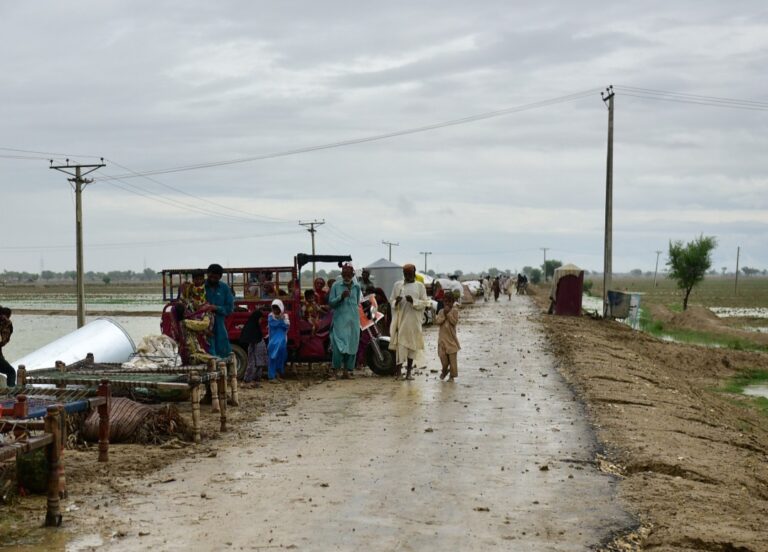





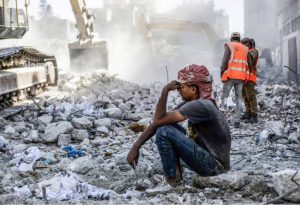



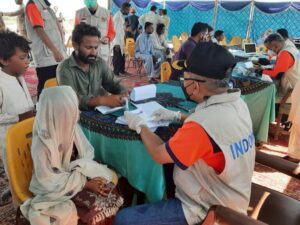
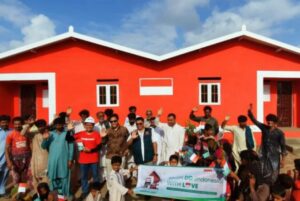
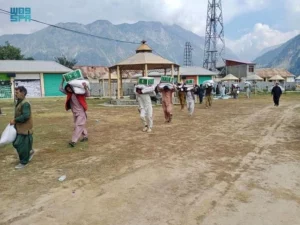
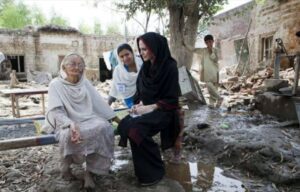
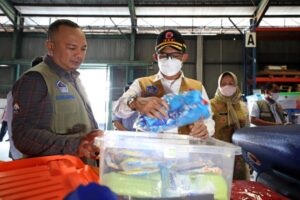













 Mina Indonesia
Mina Indonesia Mina Arabic
Mina Arabic